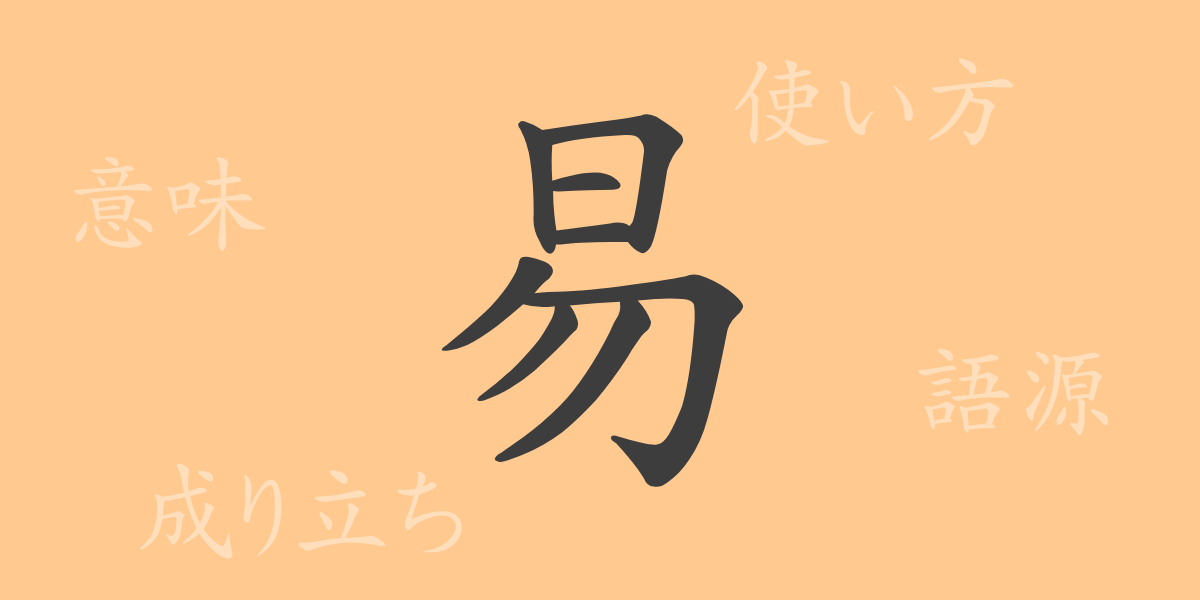“
The rich world of Japanese expressions contains many kanji characters. Among them, “”易”” (Eki) has been deeply involved in people’s lives and thoughts since ancient times, playing a significant role in our language. In this article, we will focus on the kanji “”易””, delving into its origin, meaning, usage, and even the compound words and idioms used in everyday life.
The Origin of 易 (Eki)
“”易”” has long been used as a word meaning change. As a kanji, “”易”” is a pictograph composed of “”日”” (Hi), meaning sunrise, and “”世”” (Se), meaning cutting a tree with an axe. This combination represents a philosophical understanding based on the ancient people’s observation that “”the world changes with each sunrise.”” Change is a natural principle, and understanding it is considered the etymology of “”易””.
The Meaning and Usage of 易 (Eki)
“”易”” is often used to mean “”simple”” or “”easy,”” but originally, it had the meaning of “”to change”” or “”to transform.”” In addition to being an adjective meaning “”easy,”” it is a versatile kanji that can also be used as a noun or verb, such as in “”変易”” (Heneki, change). In the Japanese language, the essential meaning of “”change”” that this kanji possesses is utilized in various contexts.
Reading, Stroke Count, and Radical of 易 (Eki)
“”易”” is a common kanji in Japan, and its reading and structure are as follows:
- Reading: The on’yomi readings are “”えき”” (Eki) and “”い”” (I), and the kun’yomi readings are “”やさしい”” (Yasashii) and “”やすい”” (Yasui).
- Stroke Count: It consists of 8 strokes in total.
- Radical: The radical is “”日”” (Hi).
Compound Words, Idioms, and Proverbs Using 易 (Eki) and Their Meanings
Some compound words, idioms, and proverbs containing “”易”” include:
- 易者 (Ekisha): A person who performs divination.
- 安易 (Ani): Acting without much thought or consideration.
- 易地思之 (Ichi shi kore wo omou): Considering things from a different perspective.
- 易々と (Ii-to): Easily, without any difficulty.
- 困難易行 (Konnan ikou): A proverb meaning that difficult things are easy to do, but easy things are difficult to do.
These expressions have their own unique nuances while taking into account the meanings of “”change”” and “”ease”” that “”易”” possesses.
Conclusion on 易 (Eki)
The meaning contained in a single kanji character is profound and tells of the richness of Japanese expressions. The kanji “”易”” is no exception, and its usage is diverse, transcending time and place. We can learn from “”易”” the wisdom and flexibility to not fear change but to accept it. By appropriately using compound words and idioms containing “”易”” in our daily word choices, we can enhance the precision of our communication.
“

























